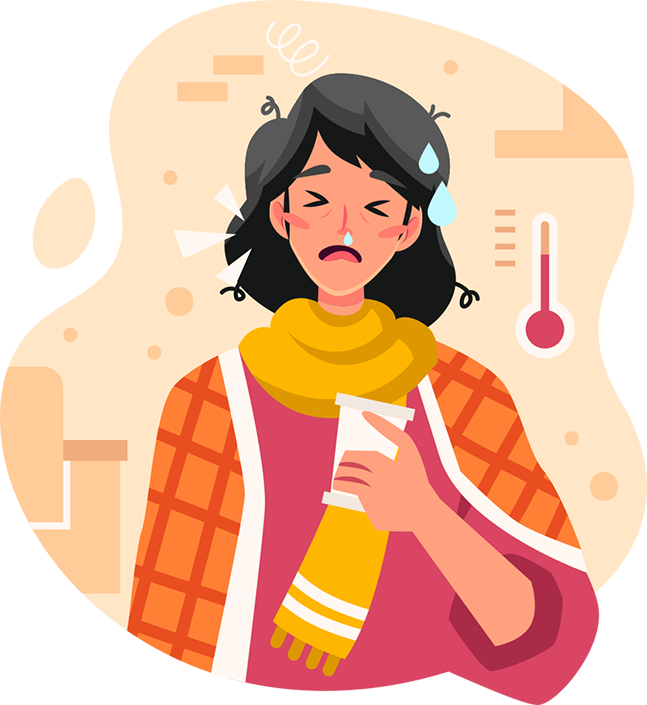
Be a Hero, Donate Plasma Today
Plasma is the clear, straw-colored liquid portion of blood that remains after red blood cells, white blood cells, platelets and other cellular components are removed. It is the single largest component of human blood, comprising about 55 percent, and contains water, salts, enzymes, antibodies and other proteins.
Because you fought the infection, your plasma now contains COVID-19 antibodies. These antibodies provided one way for your immune system to fight the virus when you were sick, so your plasma may be able to be used to help others fight off the disease.
- - Composed of 90% water, plasma is a transporting medium for cells and a variety of substances vital to the human body.
- - Plasma carries out a variety of functions in the body, including clotting blood, fighting diseases and other critical functions.
- - Recovered plasma is collected through whole blood donation in which plasma is separated from its cellular components.
It takes only 40 minutes for donation.
Your Plasma Donation
You CAN donate plasma if
You were tested positive for COVID-19
You have fully recovered and are free of symptoms for 14 days
You are between 18-60 years old
You CANNOT donate plasma if
Your weight is less than 50 kg
You have ever been pregnant
You are diabetic on insulin
You are a Cancer Survivor
You have uncontrolled diabetes or hypertension with change in medication in last 28 days
Your Blood Pressure is more than 140 and diastolic less than 60 or more than 90
Steps To Make A Difference
Step 1
Register yourself
Step 2
You would receive a call from the donate plasma team to confirm the details
Step 3
Eligibility would be checked in terms of Antibody, Hemoglobin & Protein. If eligible, we will align you to nearest closest plasma bank
Step 4
We would map the reciever with the donor
Partners


SUPPORTING PARTNERS




Frequently Asked Questions
1. What is novel corona virus?
Coronaviruses are a large family of viruses which may cause illness in animals or humans. In humans, several coronaviruses are known to cause respiratory infections ranging from the common cold to more severe diseases such as Middle East Respiratory Syndrome (MERS) and Severe Acute Respiratory Syndrome (SARS). The most recently discovered coronavirus causes coronavirus disease COVID-19.
2. What is COVID-19?
COVID-19 is the infectious disease caused by the most recently discovered coronavirus. This new virus and disease were unknown before the outbreak began in Wuhan, China, in December 2019.
3. What is Quarantine?
separates and restricts the movement of people who were exposed to a contagious disease to see if they become sick. These people may have been exposed to a disease and do not know it, or they may have the disease but do not show symptoms.
4. What is Isolation?
The separation of a person or group of people known or reasonably believed to be infected with a communicable disease and potentially infectious from those who are not infected to prevent spread of the communicable disease. Isolation for public health purposes may be voluntary or compelled by federal, state, or local public health order
5. What are the symptoms of COVID-19?
The most common symptoms of COVID-19 are fever, tiredness, and dry cough. Some patients may have aches and pains, nasal congestion, runny nose, sore throat or diarrhea. These symptoms are usually mild and begin gradually. Some people become infected but don’t develop any symptoms and don't feel unwell. Most people (about 80%) recover from the disease without needing special treatment. Around 1 out of every 6 people who gets COVID-19 becomes seriously ill and develops difficulty breathing. Older people, and those with underlying medical problems like high blood pressure, heart problems or diabetes, are more likely to develop serious illness. People with fever, cough and difficulty breathing should seek medical attention.

I Haven’t Had COVID-19. What Can I Do to Help?
You can consider donating blood! One blood donation can save up to three lives. The COVID-19 pandemic has caused unprecedented challenges to the India blood supply. Donor centers have experienced a dramatic reduction in donations due to the implementation of social distancing and the cancellation of blood drives. Blood is needed every day to provide lifesaving treatments to a variety of patients. You can help ensure that blood continues to be available for patients by finding a blood donor center near you to schedule your donation. Several sites also have information about donating plasma.
Copyright @ 2021 Donate Plasma all right reserved. Privacy Policy

